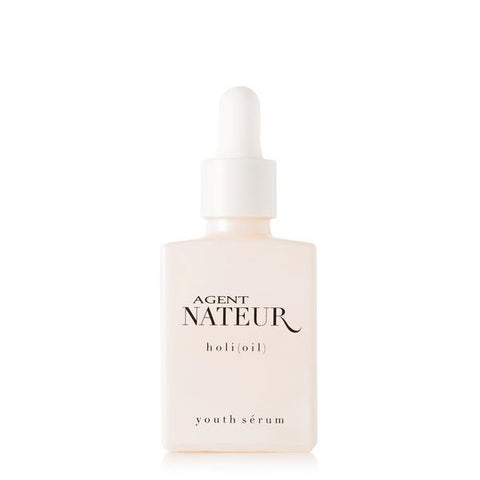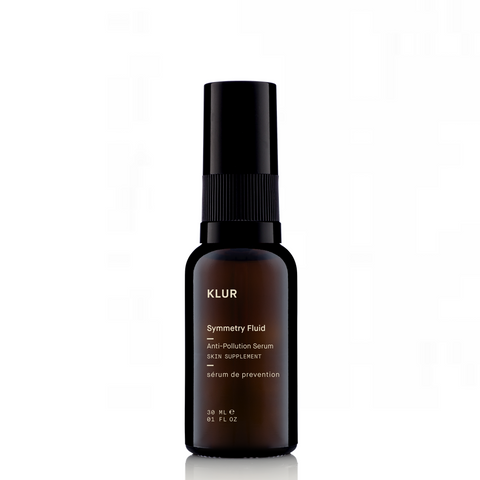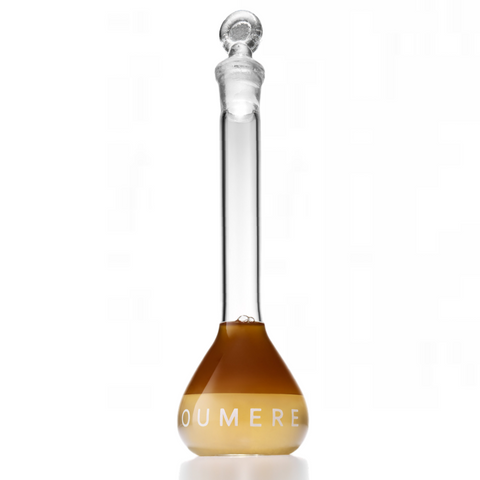Free shipping for HK orders HK$600+
8 Essential Skincare Tips for Eczema
June 22, 2021
Having eczema is not only a daily annoyance and discomfort, but can also be a blow to one’s confidence, especially when it occurs on the face. Unfortunately, this condition appears to be overall increasing in prevalence, even amongst infants and kids, in developed countries, which suggests besides genetic factors, environmental factors may be playing an important role here.
To better deal with the condition, let’s first understand what eczema really is, what can trigger flare ups, and how you can soothe existing symptoms and minimize the chance of reoccurrence.
____________________________________
What is Eczema?
In its simplest form, eczema, is a chronic inflammatory skin condition that involves an impaired, unhealthy skin barrier, an unbalance of skin microbiome, and our immune system’s reaction to external aggressors. Symptoms can include dry and scaly skin, redness and itchiness, hives, fluid-filled blisters, or even thickened skin over time.
____________________________________
Why Causes Eczema?
The truth is, there is no one simple answer. However, what we do know is it can be a combination of genetics, the skin’s microbiome and gut health, and environmental factors.
For certain eczema sufferers, their skin genetically lacks filaggrin, a protein that strengthens and maintains the skin barrier, resulting in the skin’s inability in keeping moisture in, and bacteria and irritants out, which then leads to inflammation. For others, it is related to an abnormal regulation of the immune system that tends to promote inflammation.
Recent studies have also drawn a link between eczema and the health of the skin’s microbiome, as research have found that most eczema patients have an over-proliferation of bad bacteria on their skin, while lacking the good bacteria that help prevent inflammation. Whilst, gut health, which can be affected by what we eat and drink, has been shown to be closely associated with the appearance of eczema as well.
What also triggers and aggravates eczema are environmental factors and irritants, including sulphates, alcohol-based products, dust, mites, face mask, temperature fluctuations, humid weather, cold air, illness, insect bites, mold, pollen, certain fabrics, etc.
Stress and anxiety also play a role in provoking systems. When under stress, the body releases cortisol, which increases inflammation throughout the body. This can directly lead to skin inflammation and an eczema flare.
____________________________________
How to Improve Eczema ① Diet
The number one key, is to improve gut health and reduce inflammation throughout the body by watching what you eat and drink, so as to avoid triggering a reaction on the skin. The types of food that are best avoided include dairy, gluten, sugar, eggs, nightshades, soy, alcohol, and caffeine, as they cause inflammation and can trigger and worsen eczema symptoms. You can read more about them here and here.
It’s like you know eating chips would give you acne. You can use different skincare products to help ease those angry bumps, but even the best and most expensive products won’t stop those acne from coming back if you don’t stop eating chips.
Also, do remember it takes more than a week or 2 to get everything out of the system, and symptoms WILL reoccur if you start eating all those cake and pizza again, so you really have to be consistent. Just like you want to get into this pair of skinny jeans. You start exercising, and after 3 weeks, you can finally fit in them. Yay! But then, instead of working out four times a week, you start getting lazy and work out only once a week or less. Guess what will happen? Those jeans won’t fit you anymore. It’s the same theory.
____________________________________
How to Improve Eczema ② Use a Probiotic Mask
As mentioned above, researches have found that many eczema sufferers are missing the good bacteria on their skin that help prevent inflammation, and have an overgrowth of various bad bacteria. By using a probiotic mask, these microorganisms improve and strengthen the skin’s natural protective mechanisms and maintain an equilibrium of good bacteria on the skin’s surface.
They work by secreting anti-bacterial, antimicrobial and anti-inflammatory substances that penetrate bad bacteria and kill them before they trigger an inflammation, whilst providing a protective shield to keep bad bacteria from reaching skin cells, as well as calming parts of the skin cells that want to react to the bad bacteria, thus stopping them from sending an “attack” message to the skin’s immune system that leads to redness, swelling, patchy skin, or acne-like bumps.
One point to note though, is that products that claim to contain probiotic often comprise ingredients such as fermented ingredients like Lactobacillus ferment, meaning they do not actually comprise living bacteria, and therefore are not technically probiotics. Also, even if a formula claim to contain live cultures, moisture, as in a water-based formula, can be threatening to the well-being and effectiveness of these little guys. In addition, some preservatives, natural or otherwise, would render any probiotic cultures inert and therefore useless, unless the preservative systems are crafted to address “bad” bacteria without harming the “good”.
Product Recommendation
MARIE REYNOLDS LONDON
Restore <- Click to shop
____________________________________
How to Improve Eczema ③ Do Not Use Foaming Face & Body Cleansers or Bar Soap
An impaired skin barrier is a characteristic of eczema sufferers. Now, foaming cleansers, be it for the face or for the body, usually contain sodium lauryl sulfate (SLS) or sodium laureth sulfate (SLES). These substances can strip the skin of its natural oil, which, in the skin, acts like glue that holds the skin barrier together.
So, instead of repairing and strengthening the skin barrier, foaming cleansers actually further damage the skin’s lipid barrier, thus weakening its water retention and defence ability, which leads to dryness, pre-mature aging, and the inability in stopping harmful bacteria and pollutants from entering the body through the skin. The result? Worse eczema symptoms and flare ups.
In fact, for those who tend to get eczema around the mouth and chin, it is best to also avoid toothpaste containing SLS or SLES, as they can also trigger and exacerbate eczema symptoms.
Another thing to ditch is bar soap. Our skin's barrier is slightly acidic with a pH between 4.5 and 6.2, depending on factors such as age, gender, ethnicity, climate, and body part. Now, bar soap generally has a pH range of 8.0 to 10.0. When you use soap, the alkalinity can disrupt and damage the skin barrier. What this means is that, same as SLS and SLES, using soap can strip the skin of its important oils, deteriorate the skin's natural water retention and defence function, resulting in dry, itchy, and inflamed skin, as well as worsened eczema symptoms and flare ups.
Product Recommendation
TWELVE BEAUTY
Purifying Cleansing Beauty Cream <- Click to shop
Product Recommendation
EATH LIBRARY
Smooth Operator Purifying Cleansing Gel <- Click to shop
____________________________________
How to Improve Eczema ④ Cleanse & Shower Smarter
We just talked about how the alkaline pH of soap disrupt the skin barrier. Guess what, according to official data, the pH of water in Hong Kong is between 8.2 and 8.8, meaning it is alkaline. While alkaline water is good for our body internally, it is not so great for the skin for the reason mentioned above, as in it could damage the skin barrier, and lead to dryness, itchiness, acne, inflammations, and eczema flare ups.
On the other hand, studies have found that “hard water” may lead to the development or flare ups of eczema. Now, the water in Hong Kong is typically considered “soft water”, however, from the reservoir to your tap, there is no way to tell how many impurities that can trigger your eczema are mixed in with the water.
Thus, if you are suffering with eczema on the face, you should really consider washing your face with distilled water, which has a pH of 5.8 to 6.7 and void of impurities, so that you are not actively disrupting your already compromised skin barrier twice daily. As for eczema on the body, well, it is obviously unrealistic to use distilled water, so try to use a water filter to minimize the amount of impurities and environmental pollutants touching your skin on a daily basis.
pH and impurities aside, don't forget that hot water and prolonged exposure to water, whether you are washing the face, or washing the body, can rid the skin of its natural oils, while speeding up trans-epidermal water loss. It is therefore best to avoid rinsing the face or showering using water that is too hot, and try to keep your wash up sessions short.
____________________________________
How to Improve Eczema ⑤ Strengthen The Skin Barrier
The outermost layer of the skin is made up of ceramide, cholesterol and fatty acids. Together they create a water-impermeable layer, aka the lipid barrier, to prevent excessive water loss as well as protect against bacteria and irritants. As said earlier, the lipid barrier is typically impaired for eczema suffers, therefore it is absolutely vital to repair and strengthen this protective layer of the skin.
The best way to build up the lipid barrier is by using a face or body oil. These oils are made of a mixture of soothing oils and botanical extracts, and without any emulsifiers, preservatives, texture enhancer, nor silicones, which means every single ingredient works to nourish and soothe the skin with their huge amount of essential fatty acids, vitamins, minerals, antioxidants, phenols, phytonutrients, etc... Because of their lipophilic nature and their small molecular size, they can also penetrate the skin’s layers way faster and deeper to repair and strengthen the skin’s natural barrier, nourish skin cells, fight free radicals, support skin health, and ultimately slow down signs of aging. Better yet, many of them also possess anti-bacterial, antimicrobial, and anti-inflammatory properties.
But why oils and not heavy moisturizers? The main function of ultra nourishing moisturizers (or body creams) is to help lock in water by physically forming a barrier on the skin, whilst only giving the skin minimal amount of water and oil. Because by nature they are heavier in texture, they can influence the natural skin renewal cycle by sticking the dead skin cells to the skin instead of letting them shed naturally. This layer of accumulated dead skin cells would trap oils, bacteria and dirt inside the skin, clog pores, and even create an oxygen-free environment that acne bacteria love, and kill off ‘friendly’ bacteria that keep skin healthy. Oils on the other hand, do not create this problem on the skin.

Product Recommendation
AGENT NATEUR
holi(oil) Ageless Face Serum <- Click to shop
Product Recommendation
KLUR
Elements of Comfort Aromatic Body Oil <- Click to shop
____________________________________
How to Improve Eczema ⑥ Use an Anti-Pollution Skincare Product
While the concept of an anti-pollution skincare product may be hard to grasp, environmental pollutants is one of the main triggers of eczema. The free radicals and irritants found in these pollutants attack healthy skin cells, and cause trauma that leads to redness, sensitivity, swelling and even worsened inflammation.
A typical anti-pollution product can fight and neutralize free radicals, fortify the skin's surface to counterbalance the impact of these assaults on the skin, whilst forming a breathable barrier on the skin surface to physically block out environmental pollutants.
Product Recommendation
TWELVE BEAUTY
The London Mask <- Click to shop
Product Recommendation
KLUR
Symmetry Fluid <- Click to shop
____________________________________
How to Improve Eczema ⑦ Gently Exfoliate, But Avoid Scrubs and Strong Acids
Contrary to popular belief, just because you have eczema doesn’t mean you don’t need some gentle exfoliation. By exfoliating the right way, for instance, using the gentle and hydrating Lactic Acid, Lactobionic Acid, or Gluconolactone, you can remove dead, unhealthy skin cells that are causing itchiness, flakiness and roughness, increase skin turnover so healthy skin underneath can reveal itself, and also help serums, oils, and other topical treatments penetrate the skin better.
Lactic Acid, which is derived from milk, is a gentle, hydrating AHA that is naturally found in our body. It is rather unusual in the sense that it is also one of the main substance of the epidermis’ Natural Moisturising Factor (NMF). This means although it gently exfoliates, it also improves the skin’s NMF, as well as enhances ceramides production in the epidermis, so the skin is more hydrated, and can better lock in moisture.
Lactobionic acid is a PHA derived from sugar that has similar effects to AHAs, such as exfoliation, fading pigmentation, reducing the appearance of lines and wrinkles, improving enlarged pores and smoothing skin texture. Although less potent than AHAs, they are gentle enough for even sensitive skin, as it doesn't need to be used at a low pH. In addition, besides also being a humectant that attracts water to the skin, it has been shown to act as a potent antioxidant as well that targets naturally-occurring, skin degrading enzymes to help maintain a youthful look.
Gluconolactone is a type of PHA that naturally occurs in fruit, honey, and wine. Not only is it a gentle exfoliating acid, it is also a hydrator thanks to its ability in attracting water to the skin, making it a great choice for sensitive skin. Better yet, Gluconolactone has healing and antimicrobial properties, and therefore is often recommended for healing broken skin, including those that have had recent superficial cosmetic procedures like laser treatments.
Product Recommendation
AGENT NATEUR
acid(wash) Lactic Acid Brightening Cleanser <- Click to shop
____________________________________
How to Improve Eczema ⑧ Choose Products Wisely
Ingredients like Squalane, Aloe Vera, Beta-Glucan, Niacinamide, Licorice Root, Panthenol, Palmitoyl Tetrapeptide-7, Gotu Kola, Chamomile, Calendula, Blue Tansy, Helichrysum, as well as many oils are perfect for eczema , as they contain anti-inflammatory and soothing properties that can help ease redness and sensitivities whilst hydrating the skin. Find out more details on these ingredients by clicking the highlighted ingredients.
On the other hand, do avoid artificial fragrance, because international law does not require companies to list on product labels any of the chemicals in the umbrella term of ’fragrance’, as it is considered proprietary. While some ingredients are harmless, some can be strong allergens that may cause skin irritation and sensitivities. Drying alcohol is another substance that should be avoided (learn how to distinguish between drying alcohol and skin-benefiting alcohol here).
Last but certainly not least, remember that only products in powder form or are anhydrous do not need to be preserved. Products that contain any form of water, such as water itself, aloe vera juice, honey, and flower water / hydrosol, yet claim to contain no preservatives or anti-bacterial / antimicrobial ingredients are basically ignoring your skin health and must be avoided. All water-based products (yes, honey is considered water-based too) MUST be preserved, otherwise bacteria, fungi and microbes will grow, and you will literally be smearing all those nasties onto your face.
Product Recommendation
OUMERE
Serum Bioluminelle™ <- Click to shop
Product Recommendation
TWELVE BEAUTY
Clear Beginning Hand Spray <- Click to shop
Also in The Journal

The Hidden Culprits of Skin Aging: Autophagy Decline and Zombie Cells
January 07, 2026
Don't just mask aging—reverse it. Learn how clearing Senescent Cells and restarting Autophagy creates lasting youthful skin.

The Anti-Aging Gold Standard: How Retinol Reshapes The Skin
November 12, 2025
Learn why retinol is the gold standard for anti-aging, how it works, what similar ingredients exist, and some common myths and misconceptions.

The Gut-Skin Connection: The Path to Healthy Skin
October 26, 2025
Acne, eczema, rosacea, and sensitivity can all be linked to the gut health, and even gluten? Learn all about the connection between the gut and the skin.
+Recent Articles
-
The Hidden Culprits of Skin Aging: Autophagy Decline and Zombie Cells
January 07, 2026
-
The Anti-Aging Gold Standard: How Retinol Reshapes The Skin
November 12, 2025
-
The Gut-Skin Connection: The Path to Healthy Skin
October 26, 2025
-
The Secret to Reversing Skin Aging! How Growth Factors & Peptides Help Turn Back the Clock
October 13, 2025
-
The Best Ways and Times to Take Different Supplements
August 19, 2025
-
Luxury vs. Budget-Friendly Skincare Products——What Are Their Differences?
August 06, 2025
-
How to Prevent and Improve Post-Inflammatory Hyperpigmentation (PIH)
July 10, 2025
-
How to Prevent and Improve Post-Inflammatory Erythema (PIE)
July 08, 2025
-
The Ultimate Cleansing Guide to Improve Skin Conditions
June 03, 2025
-
Do You Have Sugar Face? How Does Sugar Affect Our Skin and Appearance?
May 20, 2025
Subscribe to get skincare knowledge delivered to your inbox!












